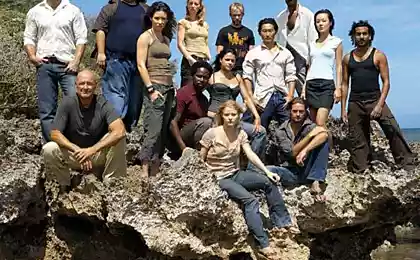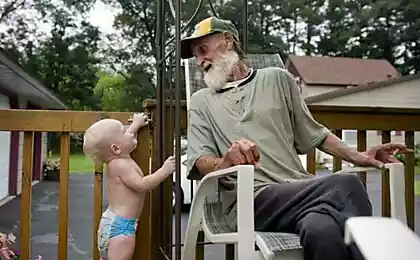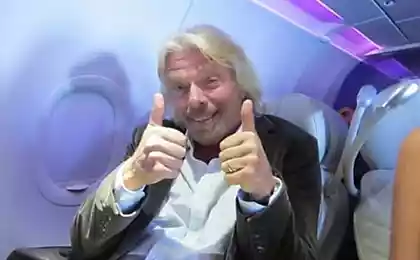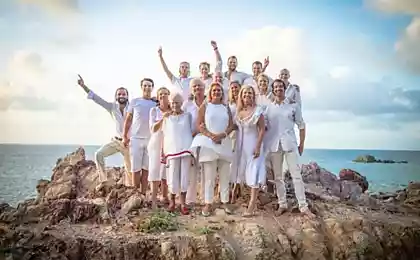272
How Richard Branson and Other Leaders Spend Their Free Time
It is no secret that we all have the right to take a vacation from time to time. The study showed that long-term work without rest leads to reduced productivity, deterioration of creativity and can even cause conflicts among colleagues. In addition, this regime has a bad effect on the physical health of a person. What will Richard Branson, Marissa Mayer, John Donahow and other world famous personalities say about vacations?
It turned out that excessive stress at work increases the risk of cardiovascular disease and exacerbation of existing health problems.
The article also draws attention to the fact that, despite the undoubted benefits of recreation, the United States is one of the few developed countries in which employers are not required to provide employees with paid leave.
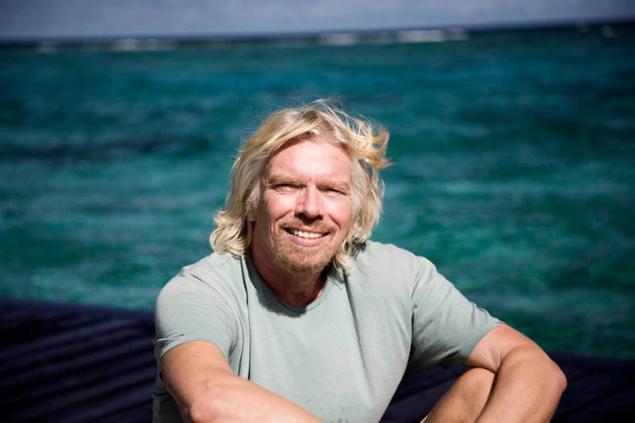
However, this trend may change. Companies like Evernote, Netflix, and LinkedIn offer employees paid vacations on flexible or even arbitrary schedules.
Hewlett-Packard and Sun Microsystems send staff home on holidays like July 4. At Charles Schwab, Motorola and Bridgestone, employees are also given some extra days off throughout the year.
Of course, these “compulsory” vacations are partly designed to give workers a chance to recuperate, but at the same time they are a way to cut costs. And while this is ultimately beneficial, are the leaders themselves taking leave?
Like any person, the boss needs to rest from time to time to relieve tension. This is good for inspiration and motivation, and also gives you the opportunity to look at work from a different perspective and improve your effectiveness as a manager. But how long should the holiday last?
In the eighties, executives typically took six-day vacations in the summer, most often in July or August. However, much has changed now. There are a number of factors that can affect the length of a boss’s vacation. These include the size of the organization, the qualifications of top managers, and the challenges the company faces. All this should be taken into account when making vacation plans.
Even if a manager cannot quit his job for a long time, he should not completely neglect the days of due leave. For example, you can relax a little, just forgetting about work during a business trip. Phil Libin, CEO of Evernote, said:
“I travel a lot. I always fly somewhere. In the past, like many businessmen, I tried to work on an airplane and used that time to get things done. Then I stopped. In fact, I banned myself from working while on a plane. I can read, play video games, watch TV or movies. Now it makes me look forward to another flight. I’m going to travel to China for 14 hours and I’m really excited about it. I don't have to do anything for 14 hours! ?
Nancy Schlichting, CEO of Detroit-based Henry Ford Health System, said, “The vacation is meant to reward long-term work in the organization, so the longer the employee’s experience, the longer the rest.” She adds: "I'm worried about people saying they can't take a vacation. Why can't they? You begin to think that they do not leave work, because they are hiding something, while conscientious employees, on the contrary, enjoy the opportunity to relax. The way I see it is that someone who does a really good job can always afford to take a break.
Since there is no definitive answer to this question, let’s see what the top six executives think.
Reed Hastings, CEO of Netflix
Hastings has publicly stated that he needs six weeks of vacation each year to balance work and personal life. He also said: "It's helpful. The best ideas often come to mind when you’re out of the workplace, climbing a mountain or doing something like that. You see things in a different perspective.”
Sheryl Sandberg, chief operating officer of Facebook
Sheryl Sandberg is not only Facebook’s chief operating officer, she also writes books. While working on Lean In, she was asked how she managed to balance her writing, Facebook and personal life. Sandberg explained that she manages everywhere because she always takes full advantage of her vacation.
Richard Branson, founder of Virgin Group
This eccentric billionaire is known for enjoying long vacations, traveling the world or relaxing at his home on Necker Island. Branson says this:
“Concentrating on entertainment does not only provide rest and recuperation. When you go on vacation, your routine is interrupted; visiting new places and meeting new people can inspire you to make unexpected decisions. If an entrepreneur or business executive returns from a vacation without any new ideas about reorganizing their business, consider it time to make some changes.
To completely disconnect from the outside world, I leave my smartphone at home or in a hotel room for as long as possible – a few days if possible. I only take a notebook and pen with me. Freed from the daily stress of work, I easily find new solutions to old problems and feel a surge of inspiration.
Because Branson likes to rest so much, he even got excited about giving employees unlimited vacation time.
John Donahow, CEO of eBay
In 2013, the CEO of eBay advocated giving employees a special day of reflection every three months. Donahow himself sometimes likes to close himself in an empty office, stand in front of a white drawing board (it should be a whiteboard, not a monitor), think about everything that happens outside, as well as problems that need to be addressed in the near future.
He reflects on the latest news, on the cases that need special attention, on the changes that need to be made, and reminds himself that there is no point in worrying about what cannot be controlled.
However, he believes that there is no decent alternative to a full vacation. For the past 28 years, Donahow has been vacationing with his family at a beach house on the Cape Cod Peninsula, where he tries to retire completely for two weeks.
Marissa Mayer, CEO of Yahoo!
As CEO of Yahoo!, Marissa Mayer became one of the busiest executives. In an interview, she said that she has about 70 meetings per week, which takes about 10 or 11 hours a day, while managing the usual responsibilities of managing the company. However, she is not overwhelmed with business, and copes with everything perfectly. In the same article, she explains it this way: “To recuperate, I take a week off once every four months.”
Tony Schwartz, CEO of the Energy Project
Schwartz, the founder and CEO of the Energy Project, believes in the need for vacations lasting more than one week. But that's not all. Schwartz is also an advocate of complete separation from the world. The lack of distractions allows him to focus on reading, tennis lessons, and entertainment. This can be called putting thoughts in order.
When asked by a reporter, he replied, “By the end of a nine-day break, I feel full of energy and new ideas.” Thanks to a calm environment, I am able to regain full control of my attention. In doing so, I am rediscovering the deeper parts of my consciousness.” published
P.S. And remember, just changing our consumption – together we change the world!
Join us on Facebook, VKontakte, Odnoklassniki
Source: megamozg.ru/company/testutor/blog/23928/
It turned out that excessive stress at work increases the risk of cardiovascular disease and exacerbation of existing health problems.
The article also draws attention to the fact that, despite the undoubted benefits of recreation, the United States is one of the few developed countries in which employers are not required to provide employees with paid leave.

However, this trend may change. Companies like Evernote, Netflix, and LinkedIn offer employees paid vacations on flexible or even arbitrary schedules.
Hewlett-Packard and Sun Microsystems send staff home on holidays like July 4. At Charles Schwab, Motorola and Bridgestone, employees are also given some extra days off throughout the year.
Of course, these “compulsory” vacations are partly designed to give workers a chance to recuperate, but at the same time they are a way to cut costs. And while this is ultimately beneficial, are the leaders themselves taking leave?
Like any person, the boss needs to rest from time to time to relieve tension. This is good for inspiration and motivation, and also gives you the opportunity to look at work from a different perspective and improve your effectiveness as a manager. But how long should the holiday last?
In the eighties, executives typically took six-day vacations in the summer, most often in July or August. However, much has changed now. There are a number of factors that can affect the length of a boss’s vacation. These include the size of the organization, the qualifications of top managers, and the challenges the company faces. All this should be taken into account when making vacation plans.
Even if a manager cannot quit his job for a long time, he should not completely neglect the days of due leave. For example, you can relax a little, just forgetting about work during a business trip. Phil Libin, CEO of Evernote, said:
“I travel a lot. I always fly somewhere. In the past, like many businessmen, I tried to work on an airplane and used that time to get things done. Then I stopped. In fact, I banned myself from working while on a plane. I can read, play video games, watch TV or movies. Now it makes me look forward to another flight. I’m going to travel to China for 14 hours and I’m really excited about it. I don't have to do anything for 14 hours! ?
Nancy Schlichting, CEO of Detroit-based Henry Ford Health System, said, “The vacation is meant to reward long-term work in the organization, so the longer the employee’s experience, the longer the rest.” She adds: "I'm worried about people saying they can't take a vacation. Why can't they? You begin to think that they do not leave work, because they are hiding something, while conscientious employees, on the contrary, enjoy the opportunity to relax. The way I see it is that someone who does a really good job can always afford to take a break.
Since there is no definitive answer to this question, let’s see what the top six executives think.
Reed Hastings, CEO of Netflix
Hastings has publicly stated that he needs six weeks of vacation each year to balance work and personal life. He also said: "It's helpful. The best ideas often come to mind when you’re out of the workplace, climbing a mountain or doing something like that. You see things in a different perspective.”
Sheryl Sandberg, chief operating officer of Facebook
Sheryl Sandberg is not only Facebook’s chief operating officer, she also writes books. While working on Lean In, she was asked how she managed to balance her writing, Facebook and personal life. Sandberg explained that she manages everywhere because she always takes full advantage of her vacation.
Richard Branson, founder of Virgin Group
This eccentric billionaire is known for enjoying long vacations, traveling the world or relaxing at his home on Necker Island. Branson says this:
“Concentrating on entertainment does not only provide rest and recuperation. When you go on vacation, your routine is interrupted; visiting new places and meeting new people can inspire you to make unexpected decisions. If an entrepreneur or business executive returns from a vacation without any new ideas about reorganizing their business, consider it time to make some changes.
To completely disconnect from the outside world, I leave my smartphone at home or in a hotel room for as long as possible – a few days if possible. I only take a notebook and pen with me. Freed from the daily stress of work, I easily find new solutions to old problems and feel a surge of inspiration.
Because Branson likes to rest so much, he even got excited about giving employees unlimited vacation time.
John Donahow, CEO of eBay
In 2013, the CEO of eBay advocated giving employees a special day of reflection every three months. Donahow himself sometimes likes to close himself in an empty office, stand in front of a white drawing board (it should be a whiteboard, not a monitor), think about everything that happens outside, as well as problems that need to be addressed in the near future.
He reflects on the latest news, on the cases that need special attention, on the changes that need to be made, and reminds himself that there is no point in worrying about what cannot be controlled.
However, he believes that there is no decent alternative to a full vacation. For the past 28 years, Donahow has been vacationing with his family at a beach house on the Cape Cod Peninsula, where he tries to retire completely for two weeks.
Marissa Mayer, CEO of Yahoo!
As CEO of Yahoo!, Marissa Mayer became one of the busiest executives. In an interview, she said that she has about 70 meetings per week, which takes about 10 or 11 hours a day, while managing the usual responsibilities of managing the company. However, she is not overwhelmed with business, and copes with everything perfectly. In the same article, she explains it this way: “To recuperate, I take a week off once every four months.”
Tony Schwartz, CEO of the Energy Project
Schwartz, the founder and CEO of the Energy Project, believes in the need for vacations lasting more than one week. But that's not all. Schwartz is also an advocate of complete separation from the world. The lack of distractions allows him to focus on reading, tennis lessons, and entertainment. This can be called putting thoughts in order.
When asked by a reporter, he replied, “By the end of a nine-day break, I feel full of energy and new ideas.” Thanks to a calm environment, I am able to regain full control of my attention. In doing so, I am rediscovering the deeper parts of my consciousness.” published
P.S. And remember, just changing our consumption – together we change the world!
Join us on Facebook, VKontakte, Odnoklassniki
Source: megamozg.ru/company/testutor/blog/23928/

